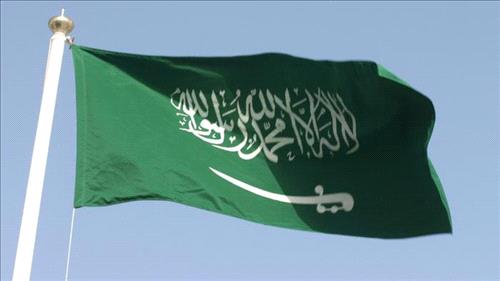Ammon News - AMMONNEWS - Saudi Arabia on Friday blacklisted the Muslim Brotherhood as a terrorist organization, along with three other Middle East-based militant groups, Al Arabiya News Channel reported, citing a royal decree.
The Saudi terrorism list also includes the kingdom’s branch of the Shiite movement Hezbollah and Syria-based militant groups the Islamic State of Iraq and Syria (ISIS) and the al-Qaeda linked al-Nusra Front.
Hundreds of Saudi fighters are believed to have joined ISIS and al-Nusra in Syria.
The royal decree gives fighters a 15-day ultimatum to return home. The declaration came after King Abdullah announced on Feb. 3 tough penalties for activities deemed as terrorism.
Under the previous decree, Saudi citizens fighting abroad face up to 20 years in jail. Similar punishments will be applied to “extremist religious and ideological groups, or those classified as terrorist groups, domestically, regionally and internationally,” the state news agency SPA reported at the time.
The royal decree also criminalized taking membership in, supporting and sympathizing with any of those groups “through speech or writing.”
Abdel Latif Al-Sheikh, head of the Saudi religious police, said the Muslim Brotherhood, Hezbollah, ISIS and al-Nusra Front were blacklisted in Saudi Arabia because “they were ruled from outside to serve political purposes.”
“They are groups that fight moderate Muslims and are causing troubles around the world. This is what we consider against Islamic principles and has given a negative impression about Muslims in the West,” Al-Sheikh said.
Long overdue
Mohammad Zulfa, member of the Shura Council, described the decision as long overdue. “We were wrong when we opened the doors of our schools and universities to foreigners who allowed such ideas to reach our youth,” he added. “We, unfortunately, realized that too late,” Zulfa said.
Shura Council member Zuhair al-Harethi, meanwhile, described the bans as a sign of the kingdom’s resolve “to fight terrorism.”
“Saudi Arabia will not allow any attempts to disrupt the country’s stability,” he said.
Al-Hartehy said some clerics issued fatwas that encourage Saudi youth to be involved in conflict areas.
“Such fatwas have ruined the reputation of Islam and have affected Saudi Arabia‘s image in front of the international community,” he said.
He noted, however, that the process to rid the kingdom of extremism is lengthy. “We are dealing with ideologies...and to counter ideas, we need new ones.”
“We need enlightened clerics to reflect the true image of Islam and explain how religious texts are in some cases used for political reasons.”
Hany al-Wafa, political analyst, described the bans as “essential for social and economic development.”
“This is what Saudi nationals care about the most,” he said.
Ali al-Tuwati, a Jeddah-based political analyst, said economic woes and social problems should be addressed through peaceful initiatives not through armed fighting as extremist groups demand.
“Of course there are people who are not happy with the ongoing situation, but such unhappiness needs to be addressed through economic initiatives,” Tuwati said.
“These armed groups have one solution and present it to the youth: carry arms and fight,” he noted.
The Brotherhood challenge
Jamal Khashoggi, a Saudi journalist and the general manager of the upcoming Al Arab News Channel, said blacklisting the Muslim Brotherhood was “the news” among the decisions revealed in the Saudi royal decree.
Khashoggi said unlike ISIS, al-Nusra Front or Hezbollah, which are all armed groups, the Muslim Brotherhood would pose a particular challenge to authorities in Riyadh because it is not so easy to identify and condemn its members.
“What are the activities of the Muslim Brotherhood in the kingdom?,” asked Khashoggi. “These are not so easy to describe and the authorities will need to answer the question of how they plan to respond the group,” Khashoggi said.
“There is also an important question that needs to be answered and is related to how the authorities would respond to a Muslim Brotherhood official visiting from Jordan or Tunisia for example,” he said.
Underground brothers
The Egypt-army backed government had declared the Muslim Brotherhood as a terrorist group in Dec. 2013, after accusing it of carrying out a series of bomb attacks in Cairo.
The 80-year old powerful Islamist group, from which former President Mohammad Mursi hails, has been gradually pushed underground by Egyptian authorities since Mursi’s ouster. Many of its members and top supporters have found refuge in Turkey and in the Gulf state of Qatar.
Earlier this week, Saudi Arabia, UAE and Bahrain withdraw their ambassadors from Qatar to protest Doha’s support for the Brotherhood, a group seen by Riyadh and Abu Dhabi as a threat to their national security.
*Alarabiya
